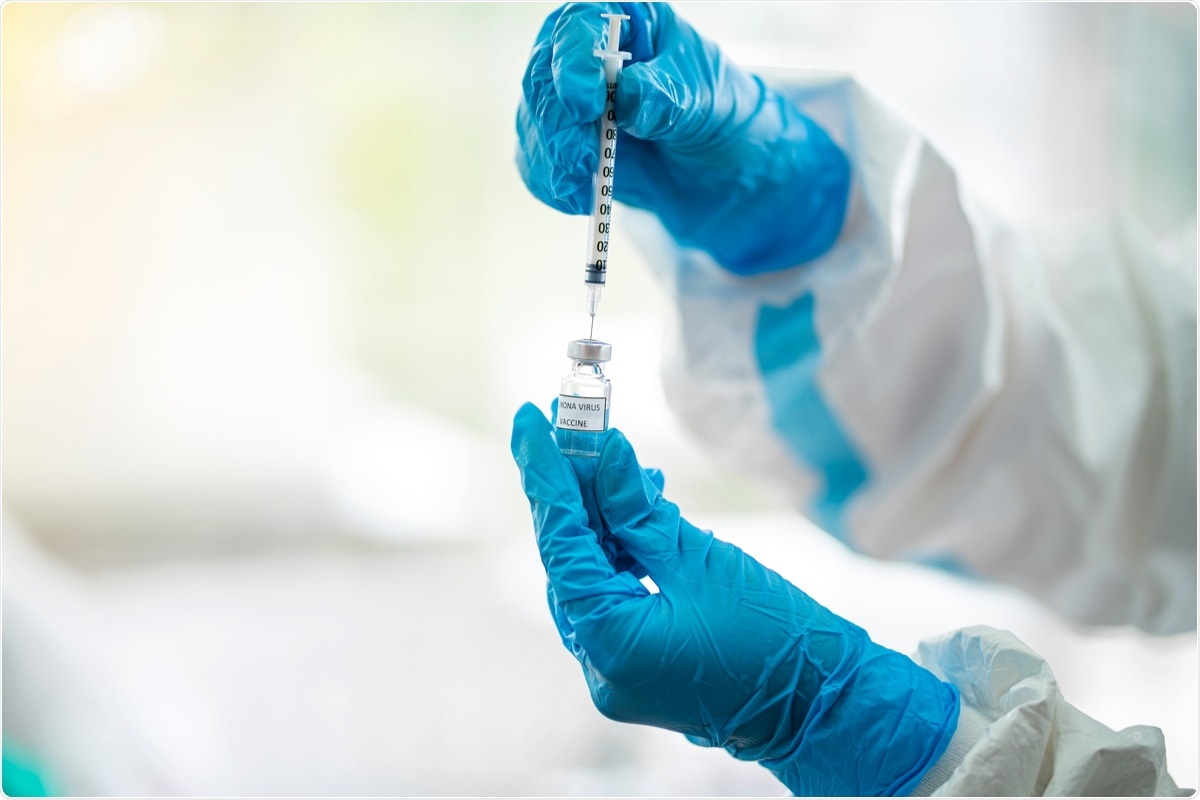Coronavirus disease 2019 (COVID-19) has spread to almost every country in the world, causing over five million deaths and forcing many governments to enact costly and restrictive lockdown measures. These have included mandatory mask-wearing, the closing of public spaces, and even full lockdowns/stay-at-home orders.
 Study: Vaccine effectiveness against COVID-19 related hospital admission in the Netherlands: a test-negative case-control study. Image Credit: People Image Studio/ Shutterstock
Study: Vaccine effectiveness against COVID-19 related hospital admission in the Netherlands: a test-negative case-control study. Image Credit: People Image Studio/ Shutterstock
While mass vaccination schemes have allowed some developed countries to remove these restrictions, many warn of new variants emerging. The Delta strain currently accounts for over 90% of new cases and has shown the ability to evade both vaccine-induced and natural immunity.
Researchers from University Medical Centre Utrecht have been investigating the efficiency of vaccines against the alpha variant in the Netherlands. A preprint version of the study is available on the medRxiv* server while the article undergoes peer review.
The study
Most variants are formed by mutations in the spike protein. This homotrimer sits on top of the virus particle surface and is key to pathogenicity in severe acute respiratory syndrome coronavirus 2 (SARS-CoV-2), and is formed of two subunits, S1 and S2. Variants normally have mutations altering residues in the receptor-binding site (RBD) in S1, as this binds to angiotensin-converting enzyme 2 (ACE2) to permit cell entry or the conformation of the homotrimer itself is altered.
The researchers gathered data across six hospitals across the Netherlands. Individuals were eligible for inclusion if they were admitted to the hospital with respiratory symptoms such as a cough or shortness of breath and if they were also eligible for COVID-19 vaccination when admitted. They must have also tested positive for SARS-CoV-2 within the last 14 days. Patients were split into categories based on age and date of admission, as the Dutch immunization program only allowed individuals of certain ages to be vaccinated after specific dates. Readmitted patients or patients transferred from another hospital were not eligible.
The scientists also gathered data such as the medical history, medication, vaccination status, disease course, test results, and demographic characteristics from the Dutch nation vaccination registry and retrospective chart review. Individuals were considered fully vaccinated if they had received both doses of a two-dose vaccine or one dose of a one-dose vaccine or partially vaccinated if they had received one dose of a two-dose vaccine. Any others were considered unvaccinated.
Comorbidity data were collected through chart review and classified based on underlying medical conditions. Patients using immunosuppressant drugs were considered immunocompromised. Differences in patient characteristics between cases and controls were tested using the Mann-Whitney U test, Fisher's exact test, and chi-squared test. Vaccine effectiveness (VE) was calculated for both full and partial vaccination by one minus odds ratio, using logistic regression taking into account age, week of symptom onset, sex, nursing home residency, and underlying diseases.
In total, the data of 634 patients were investigated, 379 cases, and 255 controls. Most patients had at least one additional comorbidity, and the median age was 68. One hundred ten patients were partially vaccinated, and 45 were fully vaccinated. The vast majority had been vaccinated with Comirnaty, but Vaxzevria, SpikeVax, and Janssen were all represented. All fully vaccinated individuals who contracted COVID-19 had at least one comorbidity, and many were immunocompromised. Length of stay remained constant across all vaccination statuses, but no fully vaccinated individual died or entered the ICU.
The adjusted VE against hospitalization was found to be 70% for partially vaccinated individuals and 93% for fully vaccinated individuals, with no difference found for which type of vaccine was administered. There was no significant effect of sex on VE. Comparing the data they had gathered to nationwide registration data, very similar results can be seen, with 79% VE for partially vaccinated individuals and 94% for fully vaccinated individuals. While the study does not assess the VE in immunocompromised individuals, the researchers refer to U.S. data indicating large drops in VE in immunocompromised individuals. At the same time, the alpha variant was the cause of most new cases – with VE against hospitalization in immunocompromised individuals at 63%.
Conclusion
The authors highlight the importance of their study in confirming high vaccine effectiveness of COVID-19 vaccination against COVID-19 related hospitalization while the alpha variant was dominant, even amongst at-risk groups. This data could be essential for public health policymakers, healthcare workers, and vaccine manufacturers in estimating the future spread of the pandemic, deciding where to focus vaccination efforts, and choosing if restrictions need to be introduced at any point. With more variants emerging, the ability of these vaccines to protect against the alpha variant will be a relief to many.
*Important notice
medRxiv publishes preliminary scientific reports that are not peer-reviewed and, therefore, should not be regarded as conclusive, guide clinical practice/health-related behavior, or treated as established information.
-
Niessen, AFA. et al., (2021) Vaccine effectiveness against COVID-19 related hospital admission in the Netherlands: a test-negative case-control study. medRxiv. doi: https://doi.org/10.1101/2021.11.09.21266060 https://www.medrxiv.org/content/10.1101/2021.11.09.21266060v1
Posted in: Medical Science News | Medical Research News | Disease/Infection News
Tags: ACE2, Angiotensin, Angiotensin-Converting Enzyme 2, Cell, Coronavirus, Coronavirus Disease COVID-19, Cough, Drugs, Enzyme, Healthcare, Hospital, immunity, Immunization, Nursing, Pandemic, Protein, Public Health, Receptor, Respiratory, SARS, SARS-CoV-2, Severe Acute Respiratory, Severe Acute Respiratory Syndrome, Spike Protein, Syndrome, Vaccine, Virus

Written by
Sam Hancock
Sam completed his MSci in Genetics at the University of Nottingham in 2019, fuelled initially by an interest in genetic ageing. As part of his degree, he also investigated the role of rnh genes in originless replication in archaea.
Source: Read Full Article